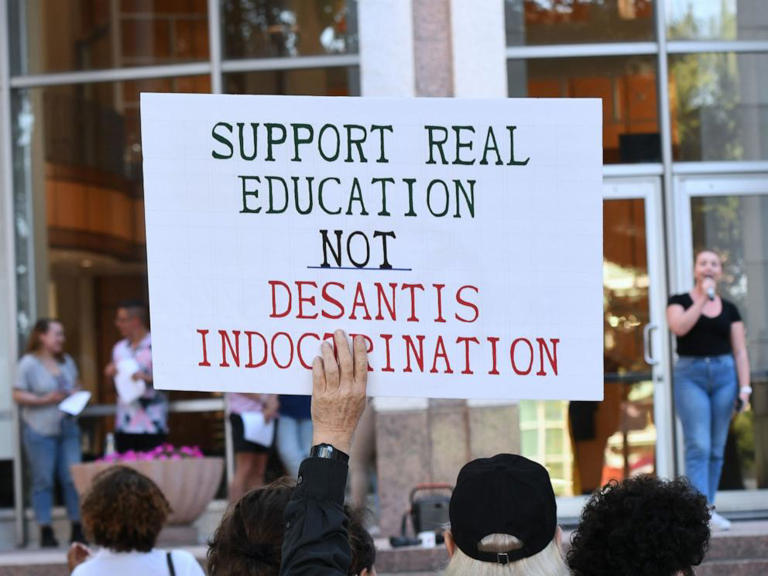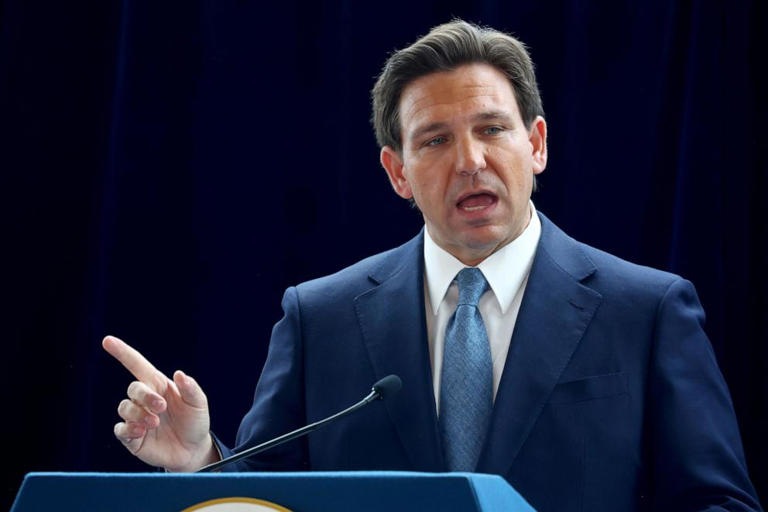US Confirms It’s Entering Talks That Could Lead to US Withdrawal From Iraq
Reports indicate the US is also discussing the idea of withdrawing from Syria
Secretary of Defense Lloyd Austin confirmed on Thursday that the US and Iraq will start talks on the future of the US military presence in Iraq in the “coming days,” which could result in a US withdrawal.
Baghdad has been calling for an end to the presence of the US-led anti-ISIS coalition in response to recent US airstrikes in Iraq. Tensions are soaring as Iraqi Shia militias have been attacking US bases in both Iraq and Syria due to President Biden’s support for the Israeli slaughter in Gaza.
Austin said the two countries will convene a meeting of the US-Iraq Higher Military Commission (HMC), which was formed last summer. Signaling that the US wants to maintain some sort of presence in Iraq, Austin said the HMC will “enable the transition to an enduring bilateral security partnership between the United States and Iraq.”
There are about 2,500 US troops in Iraq as part of the anti-ISIS coalition, known as Operation Inherent Resolve. In recent years, the US presence in Iraq has been more about pushing back against Iran’s influence in the country as ISIS has been reduced to small remnants.
Iraqi Prime Minister Mohammed Shia al-Sudani has said that Iraq’s security forces can handle ISIS without the US. Austin said the “transition” in the US presence depends on three factors: “the threat from ISIS, operational and environmental requirements, and the Iraqi security forces’ capability levels.”
There have been reports that indicate the US is also considering ending its military occupation of eastern Syria. There are about 900 US troops, and the US is able to control about one-third of Syria’s territory by backing the Kurdish-led Syrian Democratic Forces (SDF).
Sources within the Pentagon and State Department told Foreign Policy that the White House “is no longer invested in sustaining a mission that it perceives as unnecessary.” Al-Monitor reported that the Pentagon floated a plan for the SDF to partner with the Syrian government of President Bashar al-Assad, which is under crippling US sanctions.
US officials told POLITICO that a withdrawal from Syria or Iraq is not imminent but did acknowledge there are conversations within the Biden administration about pulling troops out of Syria. However, another US official told CNN that the US was not considering leaving Syria.
Secretary of Defense Lloyd Austin confirmed on Thursday that the US and Iraq will start talks on the future of the US military presence in Iraq in the “coming days,” which could result in a US withdrawal.
Baghdad has been calling for an end to the presence of the US-led anti-ISIS coalition in response to recent US airstrikes in Iraq. Tensions are soaring as Iraqi Shia militias have been attacking US bases in both Iraq and Syria due to President Biden’s support for the Israeli slaughter in Gaza.
Austin said the two countries will convene a meeting of the US-Iraq Higher Military Commission (HMC), which was formed last summer. Signaling that the US wants to maintain some sort of presence in Iraq, Austin said the HMC will “enable the transition to an enduring bilateral security partnership between the United States and Iraq.”
There are about 2,500 US troops in Iraq as part of the anti-ISIS coalition, known as Operation Inherent Resolve. In recent years, the US presence in Iraq has been more about pushing back against Iran’s influence in the country as ISIS has been reduced to small remnants.
Iraqi Prime Minister Mohammed Shia al-Sudani has said that Iraq’s security forces can handle ISIS without the US. Austin said the “transition” in the US presence depends on three factors: “the threat from ISIS, operational and environmental requirements, and the Iraqi security forces’ capability levels.”
There have been reports that indicate the US is also considering ending its military occupation of eastern Syria. There are about 900 US troops, and the US is able to control about one-third of Syria’s territory by backing the Kurdish-led Syrian Democratic Forces (SDF).
Sources within the Pentagon and State Department told Foreign Policy that the White House “is no longer invested in sustaining a mission that it perceives as unnecessary.” Al-Monitor reported that the Pentagon floated a plan for the SDF to partner with the Syrian government of President Bashar al-Assad, which is under crippling US sanctions.
US officials told POLITICO that a withdrawal from Syria or Iraq is not imminent but did acknowledge there are conversations within the Biden administration about pulling troops out of Syria. However, another US official told CNN that the US was not considering leaving Syria.
Neocon Freak-Out as Biden Contemplates Iraq/Syria Withdrawal
Neocon heads like the Middle East Institute’s Charles Lister’s are exploding with the news today that the Biden Administration may be considering withdrawing from its illegal occupations in both Syria and Iraq.
First on Syria. As Lister opines in Foreign Policy:
…four sources within the Defense and State departments said the White House is no longer invested in sustaining a mission that it perceives as unnecessary. Active internal discussions are now underway to determine how and when a withdrawal may take place.
Lister, an early and stalwart supporter of the al-Qaeda-affiliated insurgency against Assad in Syria, warns of “the catastrophic effect that a withdrawal would have on U.S. and allied influence over the unresolved and acutely volatile crisis in Syria,” adding that, “it would also be a gift to the Islamic State.”
Ah. ISIS. Remember them? We haven’t heard anything from them in awhile. That moveable feast. From not long after Syria’s Assad invited Russia in to rescue the country as it teetered on the verge of total takeover by the US-backed “freedom fighters.”
But… suddenly and if on cue… they’re BACK! Just when after more than a hundred recent attacks on the US occupation bases have convinced even Biden and his “Middle East experts” that it’s only a matter of time before lots of American blood is shed, ISIS suddenly comes roaring back for the neocons to use in attempt to justify Washington’s continued presence in the region.
Very convenient.
But perhaps someone has reminded Biden that it’s an election year and voters might start questioning just why and under what authority American troops are stationed in Iraq and Syria. Especially as the “resistance” rockets (and missiles?) are getting closer.
Similarly to what Lister is panicking about regarding US occupation of Syria, CNN is reporting today that “US and Iraqi governments expected to start talks on future of US military presence in the country.”
Writes CNN’s deep state mouthpiece Natasha Bertrand, “The US and Iraq are expected to soon begin talks on the future of the US military presence in the country, according to sources familiar with the matter, amid public calls from the Iraqi government for the US to withdraw its troops.”
Bertrand quotes several denizens of DC’s “think-tank-topia” who warn that pulling out US “trip-wire” troops from Iraq and Syria could negatively effect their plans for war with Iran…er…could um…embolden ISIS!
Bertrand quotes MIC-funded CSIS “deep thinker” Jon Alterman:
Still, rumblings of a potential US change in its force posture in Iraq would be a victory for Iran, Alterman said. ‘Any sign that this is the beginning of the end would be widely celebrated in Iranian corridors.’
Ah yes! Should the US end its illegal occupation of Syria and Iraq, Iran would celebrate! Those dastardly mullahs! How dare they celebrate no hostile troops on their border!
You know who else would celebrate? Every single mother, wife, husband, and relative of those American troops being forced to sacrifice their very lives for an occupation that has zero to do with the US national interest.
Is Biden a cynical and bloodthirsty monster? No doubt. Is he (or his puppet masters) only concerned about keeping that ring in his hands for four more years? Absolutely. But would I celebrate and praise any decision by the Biden Administration to do the right thing and get the hell out of the Middle East, starting with the occupations of Iraq and Syria? You’re damn right!
As neocon loon Michael Ledeen famously said…”faster please!”
Reprinted with permission from the Ron Paul Institute.
Daniel McAdams is Executive Director of the Ron Paul Institute for Peace and Prosperity and co-Producer/co-Host, Ron Paul Liberty Report. Daniel served as the foreign affairs, civil liberties, and defense/intel policy advisor to U.S. Congressman Ron Paul, MD (R-Texas) from 2001 until Dr. Paul’s retirement at the end of 2012. From 1993-1999 he worked as a journalist based in Budapest, Hungary, and traveled through the former communist bloc as a human rights monitor and election observer.
Neocon heads like the Middle East Institute’s Charles Lister’s are exploding with the news today that the Biden Administration may be considering withdrawing from its illegal occupations in both Syria and Iraq.
First on Syria. As Lister opines in Foreign Policy:
…four sources within the Defense and State departments said the White House is no longer invested in sustaining a mission that it perceives as unnecessary. Active internal discussions are now underway to determine how and when a withdrawal may take place.
Lister, an early and stalwart supporter of the al-Qaeda-affiliated insurgency against Assad in Syria, warns of “the catastrophic effect that a withdrawal would have on U.S. and allied influence over the unresolved and acutely volatile crisis in Syria,” adding that, “it would also be a gift to the Islamic State.”
Ah. ISIS. Remember them? We haven’t heard anything from them in awhile. That moveable feast. From not long after Syria’s Assad invited Russia in to rescue the country as it teetered on the verge of total takeover by the US-backed “freedom fighters.”
But… suddenly and if on cue… they’re BACK! Just when after more than a hundred recent attacks on the US occupation bases have convinced even Biden and his “Middle East experts” that it’s only a matter of time before lots of American blood is shed, ISIS suddenly comes roaring back for the neocons to use in attempt to justify Washington’s continued presence in the region.
Very convenient.
But perhaps someone has reminded Biden that it’s an election year and voters might start questioning just why and under what authority American troops are stationed in Iraq and Syria. Especially as the “resistance” rockets (and missiles?) are getting closer.
Similarly to what Lister is panicking about regarding US occupation of Syria, CNN is reporting today that “US and Iraqi governments expected to start talks on future of US military presence in the country.”
Writes CNN’s deep state mouthpiece Natasha Bertrand, “The US and Iraq are expected to soon begin talks on the future of the US military presence in the country, according to sources familiar with the matter, amid public calls from the Iraqi government for the US to withdraw its troops.”
Bertrand quotes several denizens of DC’s “think-tank-topia” who warn that pulling out US “trip-wire” troops from Iraq and Syria could negatively effect their plans for war with Iran…er…could um…embolden ISIS!
Bertrand quotes MIC-funded CSIS “deep thinker” Jon Alterman:
Still, rumblings of a potential US change in its force posture in Iraq would be a victory for Iran, Alterman said. ‘Any sign that this is the beginning of the end would be widely celebrated in Iranian corridors.’
Ah yes! Should the US end its illegal occupation of Syria and Iraq, Iran would celebrate! Those dastardly mullahs! How dare they celebrate no hostile troops on their border!
You know who else would celebrate? Every single mother, wife, husband, and relative of those American troops being forced to sacrifice their very lives for an occupation that has zero to do with the US national interest.
Is Biden a cynical and bloodthirsty monster? No doubt. Is he (or his puppet masters) only concerned about keeping that ring in his hands for four more years? Absolutely. But would I celebrate and praise any decision by the Biden Administration to do the right thing and get the hell out of the Middle East, starting with the occupations of Iraq and Syria? You’re damn right!
As neocon loon Michael Ledeen famously said…”faster please!”
Reprinted with permission from the Ron Paul Institute.
Daniel McAdams is Executive Director of the Ron Paul Institute for Peace and Prosperity and co-Producer/co-Host, Ron Paul Liberty Report. Daniel served as the foreign affairs, civil liberties, and defense/intel policy advisor to U.S. Congressman Ron Paul, MD (R-Texas) from 2001 until Dr. Paul’s retirement at the end of 2012. From 1993-1999 he worked as a journalist based in Budapest, Hungary, and traveled through the former communist bloc as a human rights monitor and election observer.
US Troops in Iraq Are a Tripwire for War With Iran
The New York Times Monday noted the increasing likelihood that U.S. troops will be killed by mortars or rocket fire from Shi’ite militias in Iraq or Syria as they have been attacked and wounded repeatedly in the past three months as locals take revenge for Israel’s violence in Gaza. (AQI/ISIS sure have motive to attack and frame the Shi’ites too, btw.)
As Gen. Mattis said years ago:
“I paid a military security price every day as the commander of CentCom because the Americans were seen as biased in support of Israel, and that all the moderate Arabs who want to be with us, they can’t come out publicly in support of people who don’t show respect for the Arab Palestinians.”
The point is that as Israel escalates against Hezbollah and Syria, and the U.S. escalates in Syria and Iraq (they assassinated a Shi’ite militia leader with a drone strike in Baghdad two weeks ago, leading the government to demand US withdrawal) and against the Houthis in Yemen, the danger of a real regional war against all the Shi’ite countries and substate militias and terrorist groups is quite high.
The Times says the Biden regime says that if Americans are killed in Iraq, they will feel the political necessity to expand the war to Iran with at least what they consider limited strikes.
At that point it seems very likely it would be all bets off and the Ayatollah would go to war and urge the rest of the so-called Axis of Resistance, or Shi’ite Crescent, to join them.
Even if Russia and China do nothing but watch, the costs to the United States would be enormous. U.S. troops, airmen, sailors, etc. would be at risk in Iraq, Kuwait, Qatar, Bahrain, UAE and Saudi, along with an empire worth of equipment based in Qatar and Bahrain, home of CENTCOM and the center of American air power there, as well as the home of the U.S. Navy’s 5th Fleet.
Iran has thousands of missiles that can reach these targets, as well as air defenses which would be capable of destroying many air force and navy planes before air dominance over Iran could be achieved if it ever could at all, which may be a big assumption.
The Iraqi government and army would also virtually certainly take Iran’s side and join up with the militias to march on Iraqi Kurdistan and force U.S. troops out; same for Syria.
(Nevermind the danger of Hezbollah type groups wreaking havoc across the EU and hopefully not the U.S. too, nor the threat that U.S. Sunni client monarchies and dictatorships in the region could fall and be replace by who-knows-what.)
So then what is Biden supposed to do? Unleash our entire navy and air force (possibly even army, marines, SOCOM) against Yemen, Lebanon, Syria, Iraq and Iran at the same time — and all to continue to abet Israel’s ethnic cleansing campaign in Gaza?
In 2007, the Chiefs told W. Bush, No way. They don’t want to fight unless they know they will have “escalation dominance” over every stage of the conflict, and here they know they would not have it.
I move for a vote of no confidence in President Biden’s leadership.




